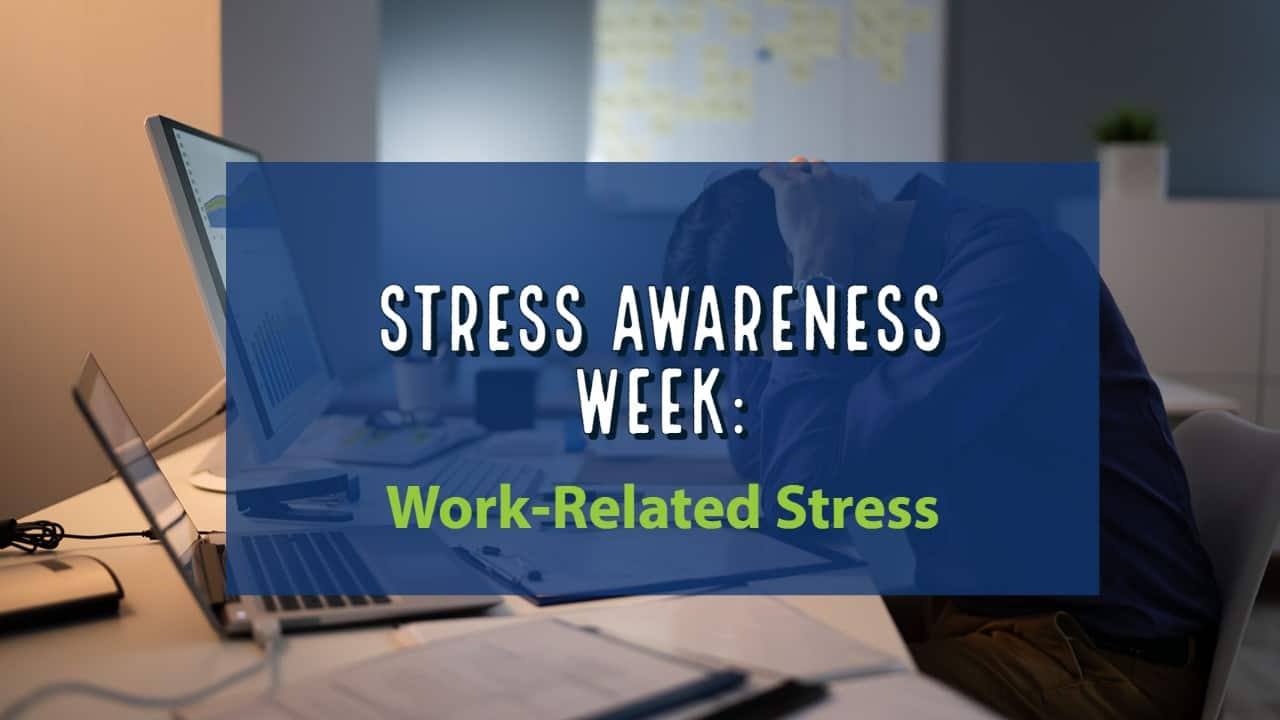Stress Awareness Week: Work-Related Stress
It’s Stress Awareness Week and although work-related stress is something that nobody likes, we all experience it at some point. Some experience this stress more than others; whether your job involves going out all day or sitting in the office, we all experience it. What effects does work stress have on us, other than grey hair?
What Are the Signs of Work-Related Stress?
The common signs of work-related stress include:
- A lack of concentration
- Increased frustration
- Arguments with colleagues
- Short temper
Of course, each of us experiences different effects when we’re stressed.
When we notice these symptoms, we must take the steps to improve so we don’t do or say something we feel in the moment but don’t really mean. If you notice your colleagues or employees are displaying this behaviour, maybe you should take them aside and ask if everything is okay and how you can help. There are many ways we can try to combat stress, but for many, it is something that we try and sleep off.
How to Combat Stress?
Picture it; it’s a busy Monday morning, and you’re already arguing with your co-workers and getting increasingly agitated as the day goes on. So, what do you do? Well, first off, why not test out some breathing techniques? Focusing on your breathing can work wonders to calm your nerves and unblock your chakras. Find out more about breathing techniques here!
Working From Home
Another way that staff may be able to decompress is by working from home! Many people have been WFH or utilizing a hybrid working style since the pandemic hit back in March 2020. If you’re feeling stressed from work, why not ask your employer if you’re able to work from home for a couple of days? You’ll be able to save on fuel spend, wear comfortable clothes and sit in your own safe space in the comfort of your home! Not to mention you can make lunch at lunchtime, no more being stuck with the food you fancied the night before! If you want tips on how to work efficiently from home, check out our blog here.
Speaking of Fuel Savings…
How else can you save money on your fuel spend? By going electric, duh! We had to sneak it in somewhere. Did you know you can go electric from under £300/month on Salary Sacrifice? Well, now you do! Get in touch here if you want to find out more about salary sacrifice.
Back to the Techniques
In addition to this, you may find the art of mindfulness helpful too. Mindfulness has roots in Buddhism and meditation, but you do not have to be spiritual to partake in the technique. The aims of mindfulness are to help you:
- Become more self-aware
- Feel calmer and less stressed
- Cope with difficult feelings and thoughts
- Choose appropriate ways to respond to thoughts and feelings
Mindfulness can be useful for people in everyday life, but this method doesn’t work for everyone, and that’s okay! You just need to find the right solution for you. If you would like to find out more about mindfulness, follow the link here!
So now we have covered some of the signs and ways to cope with feeling stress, but how can we prevent it from happening in the first place? Sleep is often the main factor when it comes to stress. Getting enough sleep is important for many things, and stress is no exception. It’s recommended that adults get between 7-9-hours of sleep per day; this ranges for everyone, but if you’re looking for a sleep guide, check one out here.
The Severity of Work-Related Stress
It may seem like a don’t-take-home kind-of thing, but the reality is much different. Whether you go to the office 5 days a week or if you work from home a couple of days, work-related problems can and will follow you home. The severe negatives of work-related stress can include acute anxiety and depression. If you have any feelings of anxiety or depression in the workplace, you should speak to your employer, a counsellor, your HR, or just a colleague you feel close to. All of these people should and most likely will take the steps to help you where they can.
Finally, as an employer, you must support your employees if you notice they’re stressed whether it’s Stress Awareness Week or not. Hold stress workshops, make everyone aware of the signs, and try to offer support where you can. We hope you enjoyed our blog for Stress Awareness Week and we look forward to hearing from you soon.
Tags : electric, mindfulness, Salary Sacrifice, Save money, stress, work from home, work stress, work-related stress

